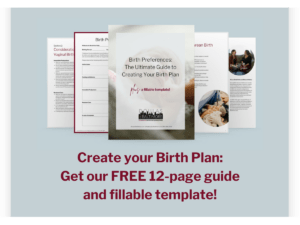Welcoming a new baby is a profound change in your life. The first of our mission at Doulas of Baltimore is to make sure that change isn’t stressful, overwhelming or full of uncertainty. The second part is serving our community. This Giving Tuesday, we wanted to highlight three local nonprofits that we love. They are doing this same work–making sure new parents are supported and have the resources they need.
The Family Tree
The Family Tree’s is for all children to be safe and supported, and is the leading authority in Maryland for the prevention of child abuse. In 1997, Parents Anonymous® of Maryland and the Child Abuse Prevention Center merge to form The Family Tree. They have served 300,000 families in Maryland. Their services include counseling and parenting classes, a 24/7 help line, community outreach, and policy and advocacy work. Our last in-person event in February 2020, Mead the Doulas with Charm City Meadworks, was a fundraiser for The Family Tree.

Our Mead the Doulas event to benefit The Family Tree.
Every holiday season, they also offer a free holiday shop to parents. They are currently accepting donations until December 3rd of new, unwrapped toys and presents for children ages 0-18. You can learn more here. They also accept monetary donations any time of year, and have volunteer opportunities.
ShareBaby
We all know how important diapers and essentials are when baby arrives. We also know that you go through a lot of diapers, and it can be a big expense. ShareBaby is a Baltimore nonprofit that provides diapers and essential items to new parents. They write that this helps “reduce stress, depression, and barriers to work for families,” and provides peace of mind for the families in need. In the past, we’ve done diaper drives for ShareBaby and plan to do more in the future. Together with their partners, they deliver 200,000 diapers a month to more than 15,000 children across Baltimore.
This GivingTuesday, they are also collecting coats for babies and children, which can be purchased online and shipped to the warehouse or dropped off directly. You can find out more here.
Rainbow Families
Rainbow Families is a DC-and Baltimore-area nonprofit that educates, connects, and supports LGBTQ+ families and parents-to-be. They offer virtual support programs for new parents, as well as families going through the processes of adoption or assisted conception. Their “Maybe Baby” course offers a chance for people to explore questions of parenthood and building a family. They also provide opportunities for parents to connect in the Washington, DC and Baltimore regions through events, a camp weekend, and get-togethers. We provide ongoing support to Rainbow Families and are part of their directory of service providers.
We hope you consider supporting these nonprofits this Giving Tuesday.


